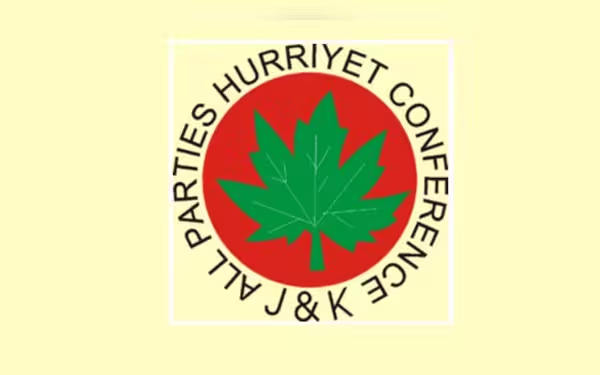Saturday, November 16, 2024 07:35 PM
APHC Warns of Demographic Threats in IIOJK
- APHC raises alarm over demographic changes in IIOJK.
- Call for UN intervention to protect local rights.
- Concerns over cultural identity and heritage at risk.
 Image Credits: radio.gov.pk
Image Credits: radio.gov.pkAPHC warns of demographic changes in IIOJK, urging UN intervention to protect local rights and cultural identity.
The situation in Indian illegally occupied Jammu and Kashmir (IIOJK) has been a topic of intense discussion and concern for many years. The region, known for its stunning landscapes and rich culture, has also been the center of a long-standing conflict. The All Parties Hurriyat Conference (APHC), a coalition of pro-freedom parties in Kashmir, has recently raised alarms about the demographic changes occurring in this sensitive area. These changes, they argue, are a result of policies that aim to alter the region's population dynamics, which they describe as "fascist" in nature.
In a recent statement, the APHC emphasized the urgency of the situation, calling on the United Nations to intervene. They believe that the international community must take a stand against these policies that threaten the identity and rights of the local population. The APHC's warning highlights the fear that the demographic shifts could lead to a permanent change in the region's cultural and social fabric, which has been predominantly Muslim for centuries.
The concerns raised by the APHC are not unfounded. Over the years, there have been reports of various measures taken by the Indian government that could lead to significant demographic changes in IIOJK. These include the settlement of non-local populations and changes in land ownership laws, which many believe are designed to dilute the local identity. Such actions have sparked protests and unrest among the local populace, who feel their rights and heritage are under threat.
It is essential to understand the implications of these demographic changes. If the local population is outnumbered or marginalized, it could lead to a loss of cultural heritage and a shift in the political landscape of the region. The APHC's call for international intervention is a plea for justice and recognition of the rights of the Kashmiri people. They seek to ensure that the voices of the local population are heard and respected in the face of policies that could irreversibly alter their way of life.
The demographic situation in IIOJK is a pressing issue that requires immediate attention from the global community. The APHC's warning serves as a reminder of the delicate balance that exists in the region and the need for a fair and just resolution to the ongoing conflict. As the world watches, it is crucial for all stakeholders to engage in dialogue and work towards a peaceful solution that honors the rights and identities of the Kashmiri people. Only then can we hope for a future where the rich cultural tapestry of IIOJK is preserved for generations to come.













